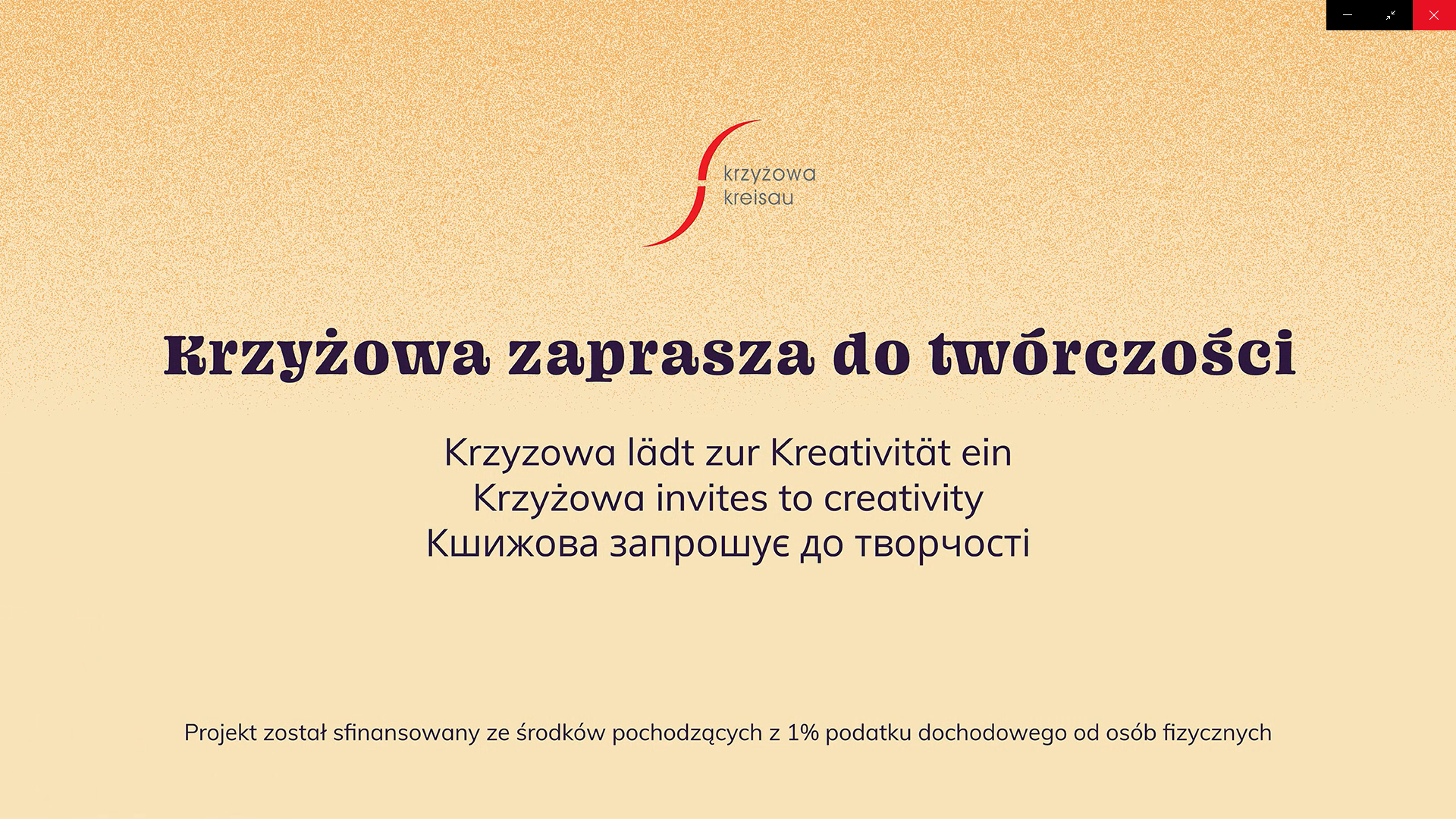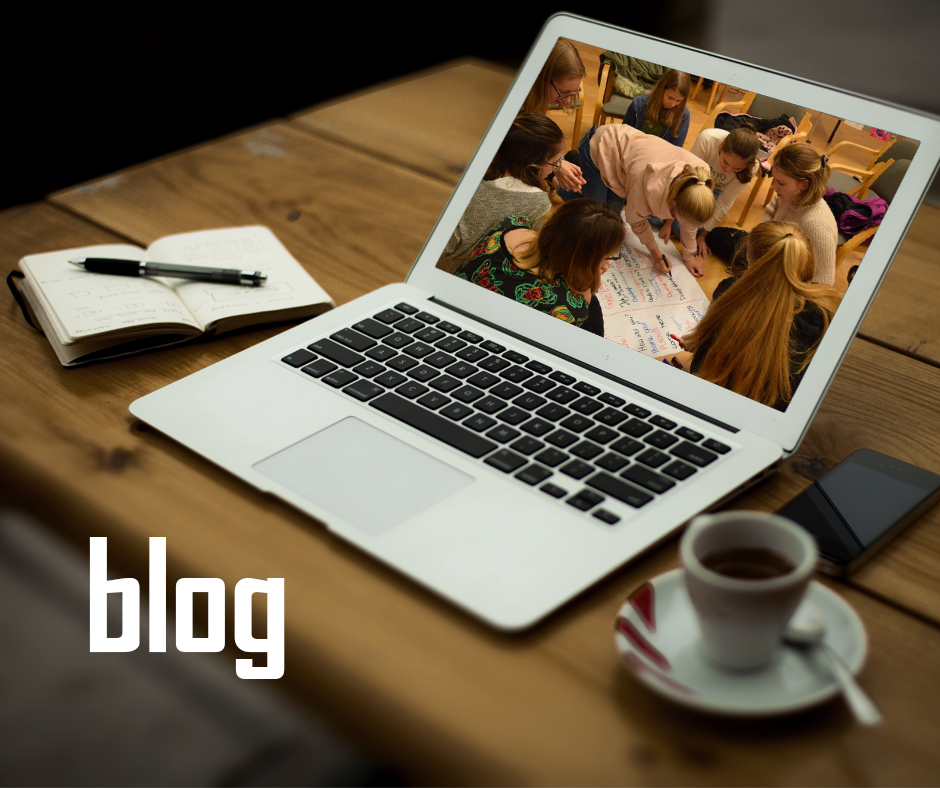 A series of online workshops "Krzyżowa invites to creativity". On why we focus on creativity
A series of online workshops "Krzyżowa invites to creativity". On why we focus on creativity
Liubov Shynder, Agnieszka Duduś, IYMC Krzyżowa
The project of art and environmental education online "Krzyżowa invites to creativity" arose from the need to maintain contact with young people and teachers in times of pandemonium, when we have been cut off from various forms of meeting in Krzyżowa and creating together.
The aim of the project is to present the International Youth Meeting Centre's approach to art education through videos, which can be watched at any time and which present, step by step, four different artistic methods that combine elements of upcycling and thus show how to create art in harmony with care for the environment.
Read more: A series of online workshops "Krzyżowa invites to creativity". On why we focus on creativity
Digital ethics. How young people understand it?
Charlotte, IYMC Krzyżowa
A youth exchange on the topic of digital ethics brought 30 young people from Olkusz and Gräfelfing together in virtual space! Between the almost 30 screens a common thinking space was created in which connections grew. During the 4 project days, the young people reflected on their own media behavior, analyzed the connection between needs and the use of social media and apps. They discussed and clearly named the anti-democratic tendencies on the Internet and learned about the concept of "counterspeech". Furthermore the students developed options for action that strengthen their digital citizenship! The project was concluded with projects that the young people developed in bilateral teams. One project is this article that we would like to share with you,
Read more: Digital ethics. How young people understand it?
Anti-Racism in International Youth Work
Recognizing My White Privilege: I Understand That I Will Never Understand. But I Stand.
Charlotte, IYMC Krzyżowa
I understand that I will never understand. That I will never have to hear again and again the question "Where are you from"? That I will never be the only person on a train or bus asked for identification. That I will never be held back and hurt by the blatant systemic racism and everyday racism. That I will never be denied services or work or apartments because of my skin colour. That I will never have to endure struggles and obstacles in life because of my skin colour. I understand that I will never understand, but I stand.
When the pictures of the brutal police operation against George Floyd spread around the world, people began to demonstrate in the streets and the IYMC Krzyżowa was also faced with the question of whether and how we should express ourselves, because anti-racism is a fundamental principle for us: There is no neutrality towards racist and extreme right-wing positions and, quite clearly, the framework of the Convention on Human Rights can not be exceeded.
Read more: Anti-Racism in International Youth Work
"Welcome to the new (virtual) reality"
28.05.2020, Charlotte, Agnieszka Żegańska
Before we finally realize a project, months of hard work are already behind us.
Almost a year ago, we, the Krzyzowa Foundation and our partner, the Kreisau-Initiative e.V., won the NETTZ-Förderpreis. The awarded project was #CreatingSpace A digital future with ethics in mind. The starting point for the project was the reflection that we, as institutions of civic education, increasingly see the need of not treating civic education and digital competences as separate issues. However, it seems to us that it is necessary to work on expanding media literacy through inclusion of competences in the field of digital media ethics.
Thus, first we were awarded the price. Then it was followed by the successful launch event in December and our first event on digital ethics took place in Kreisau. Full of energy for action we then went into the conception to continue the project series in 2020. The participants* were recruited and the financing was secured, but then came Corona and the question was: Do we dare to do it online? YES!
After an organisational marathon and thanks to the flexibility of our sponsors, the Foundation for German-Polish Cooperation and the Konrad Adenauer Foundation and the participants*, the concept for the online training was ready after a few days of intensive work.
Now follows an interview with Agnieszka Zeganska and Charlotte Lohmann, both education specialists of the IYMC Krzyzowa, how they experienced the online training. The special thing about the interview is that it is conducted in German and Polish, because that is the reality in which the IYMC in Krzyzowa works. In our daily work we are surrounded by different languages every day, which tuck us up like a piece of clothing that people like to wear. One gets used to it and never wants to take it off.
Read more: "Welcome to the new (virtual) reality"




 A series of online workshops "Krzyżowa invites to creativity". On why we focus on creativity
A series of online workshops "Krzyżowa invites to creativity". On why we focus on creativity

